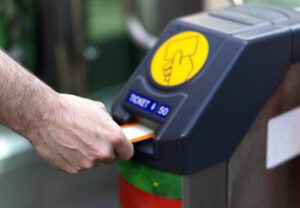
Return tickets are set to be scrapped and new digital ticketing introduced under reforms of the British rail system to be announced this week.
The two-way tickets, which offer a discounted rate, will be replaced by “single-leg pricing” which will mean that the price of two singles will be the same as the current return fare, according to the Telegraph. The idea was trialled by London North East Railway (LNER) in 2020.
The new fares are expected be revealed by the transport secretary, Mark Harper, in a speech on Tuesday in which he will outline plans for “Great British Railways” (GBR), a new public body that will bring the operation of track and trains under the same roof and oversee timetables and ticketing.
Harper is expected to raise the prospect of better use of technology, as well as the new pricing strategy, to simplify the rail ticketing system, potentially leading to the use of smartcards, similar to London’s Oyster Card system, across the UK.
The idea was first presented by Boris Johnson and Grant Shapps in May 2021, but has yet to be realised amid turmoil in government and Conservative party fears of “nationalisation by the backdoor”.
It was first proposed by Keith Williams, the ex-chief executive of British Airways and chair of Royal Mail, who envisaged a “guiding mind” for the industry that he likened to the “Fat Controller” – the character from Thomas the Tank Engine children’s books.
His review of the rail system came after the 2018 timetable debacle that sparked chaos and cancellations. Williams judged that fares were a mess, costs too high, the industry fragmented, and the objectives of Network Rail – which oversees tracks – and operators – who handle trains – were opposed rather than unified.
He also found that the current franchise system was not fit for purpose. With Southeastern, Northern and LNER now run by the government’s own operator of last resort, an overhaul has almost been completed by default.
The new effort to drive change comes as the government faces criticisms for its failure to resolve months of strikes on the railways that have affected commuters and leisure travellers alike.
Inflation, and the pay battles that has triggered, have meanwhile compounded the financial battering from Covid, which hit an already struggling system. Changes in commuting as a result of the shift to working from home have left operators with a £2bn annual fares shortfall.
The collapse in passenger revenue has all but ended franchising. Emergency contracts for train operators have kept the industry afloat, but critics say a more long-term solution is required.
Read more:
Return train tickets set to be scrapped in UK rail shake-up






